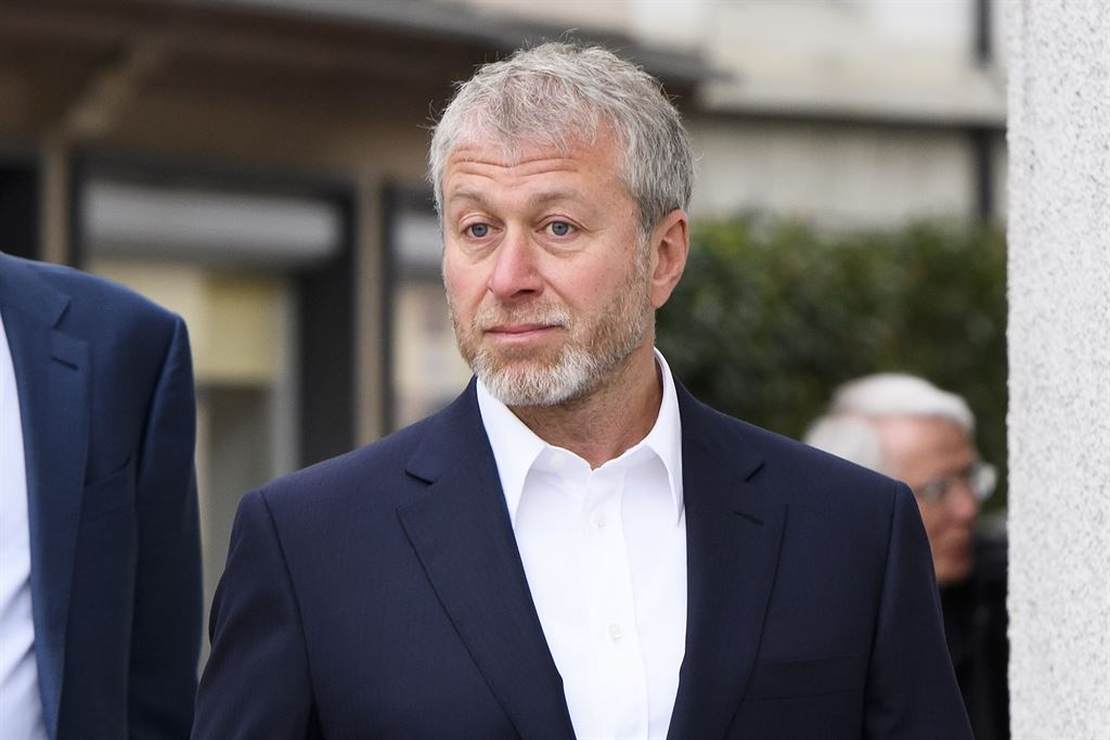
Russian opponents of President Putin have a way of falling out of windows and also of suddenly being poisoned with mysterious substances. It happened to former spy Sergei Skripal in 2018. It happened to opposition leader Alexi Navalny in 2020. And now, according to a report by the Wall Street Journal it happened to a Russian oligarch and members of a Ukrainian peace delegation earlier this month. Bellingcat has confirmed the details.
Abramovich, along with another Russian entrepreneur, had taken part in the negotiations alongside Ukraine’s MP Rustem Umerov. The negotiation round on the afternoon of 3 March took place on Ukrainian territory, and lasted until about 10 pm.
— Bellingcat (@bellingcat) March 28, 2022
The next day the group of negotiators drove from Kyiv to Lviv on the way to Poland and then Istanbul, to continue informal negotiations with the Russian side. A Bellingcat investigator was asked to help provide an examination by chemical weapons specialists.
— Bellingcat (@bellingcat) March 28, 2022
Roman Abramovich is a Russian oligarch who is currently on the sanctions list because of his close ties to Putin. He’s the owner of the Chelsea soccer team and was recently ordered to sell the team by the Premier League. So the first surprise in this report is that Abramovich made two trips to Ukraine to participate in peace talks as a kind of mediator.
One of more surprising things about this story is that Abramovich has been to Kyiv twice, and that it was kept fully under the radar. I suppose he had good enough security provided by the Ukrainians he wasn’t stopped at the 300 armed-volunteer-manned checkpoints on the way
— Shaun Walker (@shaunwalker7) March 28, 2022
But based on the reports out now, there’s no doubt that this wasn’t just a random case of food poisoning. The symptoms including peeling skin and in Abramovich’s case temporary blindness.
A source with direct knowledge has just confirmed to me the WSJ/Bellingcat reports that Abramovich suffered symptoms of poisoning. “Roman lost his sight for several hours” and was treated in Turkey, the source said.
— Shaun Walker (@shaunwalker7) March 28, 2022
Through a spokesman, Abramovich has confirmed the poisoning to the BBC, though details of the symptoms were left out:
The Wall Street Journal reported claims the alleged poisoning was orchestrated by hardliners in Russia who wanted to sabotage the talks.
The conditions of Mr Abramovich and the Ukrainian negotiators, who include Ukrainian MP Rustem Umerov, have improved since the incident on 3 March, the paper quoted sources as saying.
READ RELATED: Seven things I’d like my readers to know about me by Zoe Sommerville, author of The Marsh House
A source close to Mr Abramovich told the BBC he had suffered symptoms of suspected poisoning. They said he had now recovered and was continuing with negotiations to try and end the war in Ukraine.
Sky News reports this was apparently an attempt to scare not to kill, though the exact method of poisoning is still unknown.
The investigative website said it consulted with chemical weapons experts, who concluded the symptoms “are most likely the result of intentional poisoning with an undefined chemical weapon”.
Bellingcat added: “An alternative less likely hypothesis was use of microwave irradiation. The symptoms gradually subsided in the course of the following week.
“The experts said the dosage and type of toxin used was likely insufficient to cause life-threatening damage, and most likely was intended to scare the victims as opposed to cause permanent damage.
According to the Moscow Times, Bellingcat wasn’t able to get samples from the member of the delegation in a timely manner so a German lab was unable to identify the specific poison used. As for this being an attempt to scare, i.e. a warning, rather than an attempted assassination, I’m not completely convinced. Yes, it’s true that everyone survived but then so did Sergei Skripal and his daughter. So did Alexei Navalny, thanks to the pilot’s decision to quickly land the plane he was on.
I’m not trying to start a new conspiracy theory, just pointing out that previous Russian attempts to kill haven’t always worked. Maybe this one didn’t quite work either? One last tidbit to consider. One of the Ukrainian negotiators who was a victims of this poisoning was shot dead a few days later, though the circumstances are vague.
In summary: it’s all murky as fuck.
— Shaun Walker (@shaunwalker7) March 28, 2022
The man who was shot was Denis Kireev. Here’s a report on his death from the Sun noting he was described as both a hero and a traitor:
Officials in Kyiv said Denis Kireev, 45, a spy and former banker, was killed during an operation “defending the nation”.
The government hailed him a hero hours after MPs had earlier claimed he had committed “treason” and was executed by the Ukrainian intelligence agency.
Both Russian and Ukrainian sources made claims about his alleged spying activities including that he may have been working for both sides.
Very murky indeed. In the midst of a war with both sides spreading disinformation, it’s hard to know what to believe.
Source:






